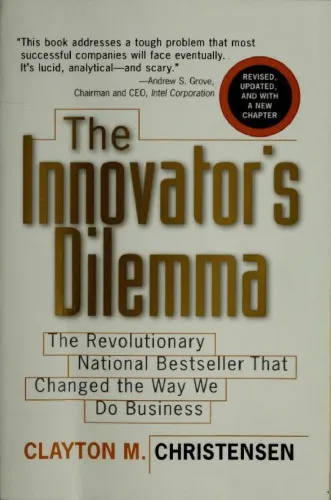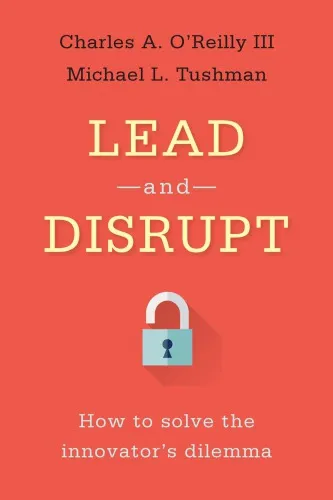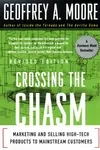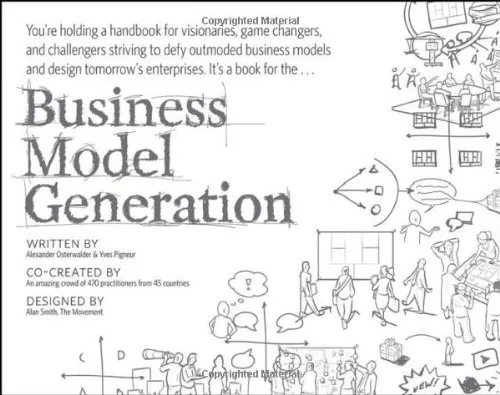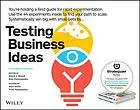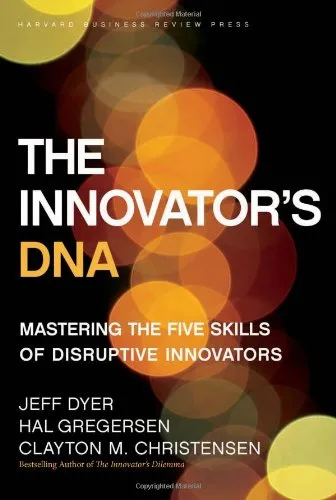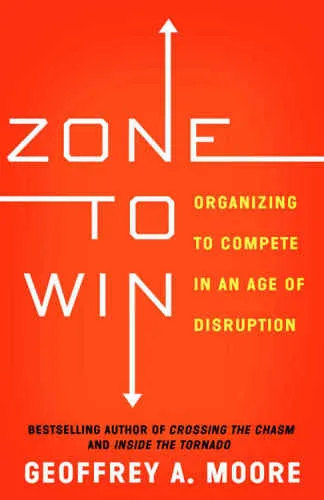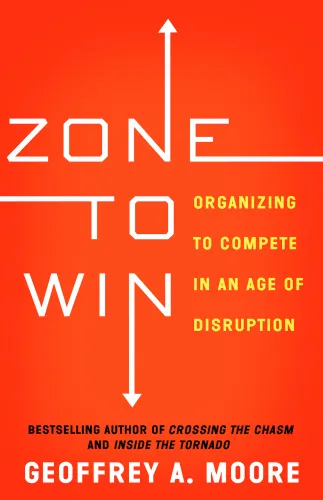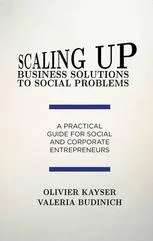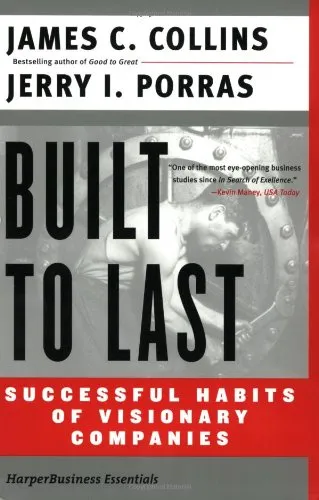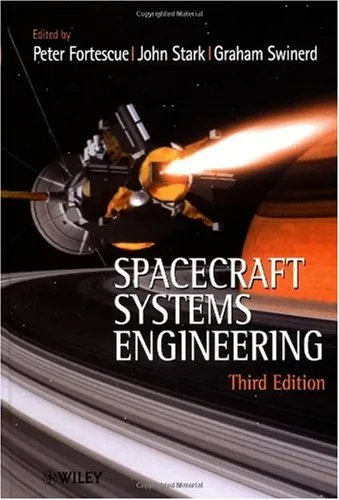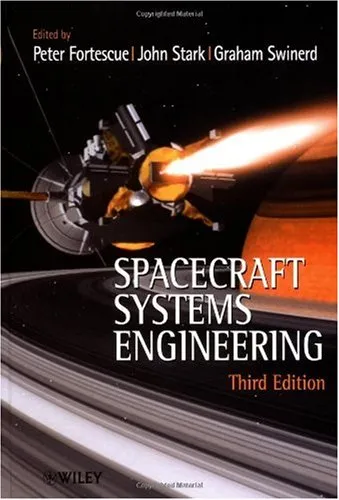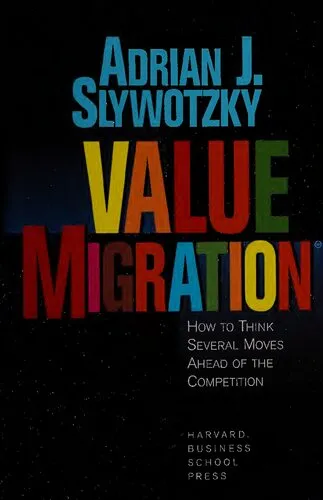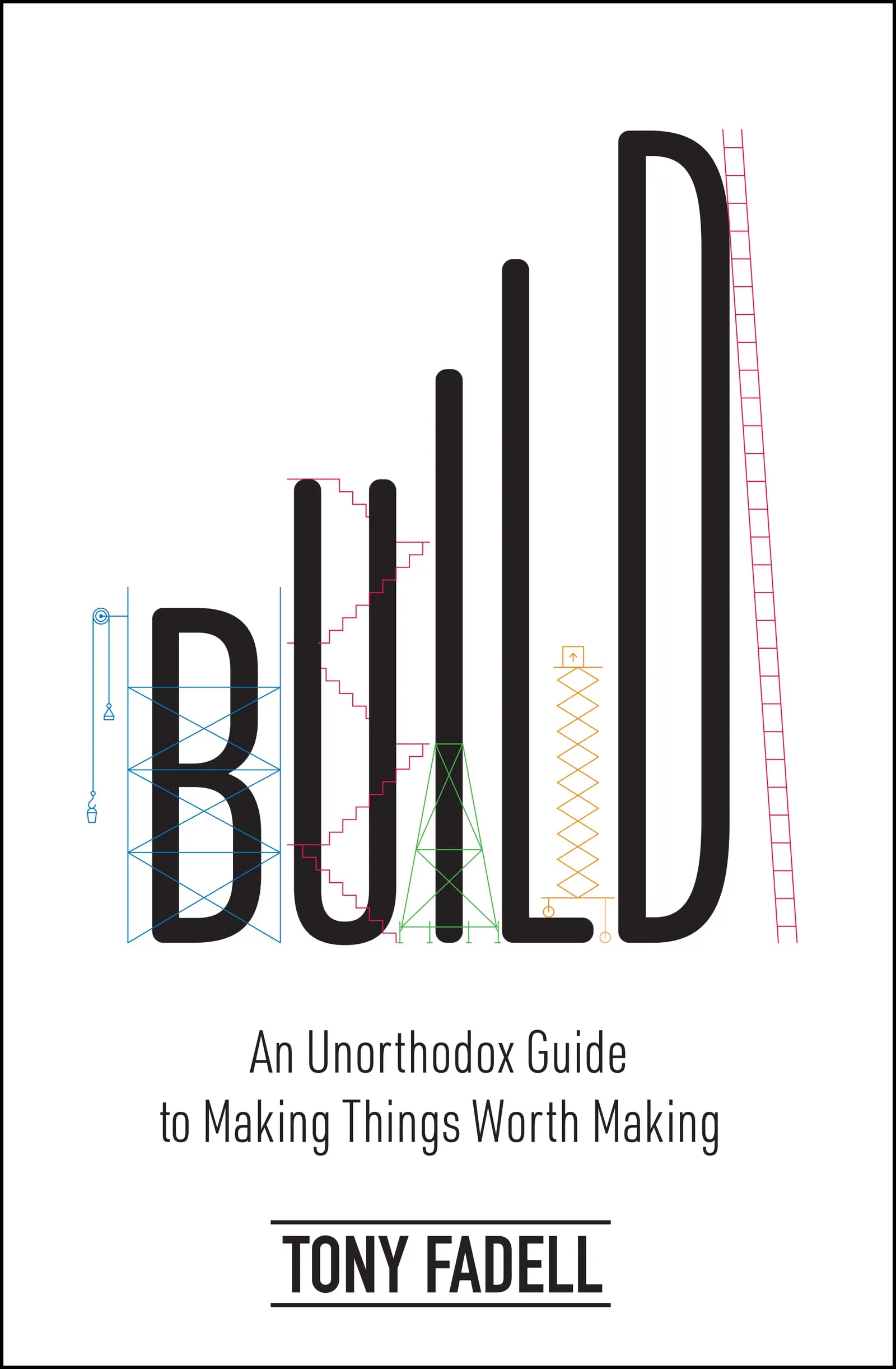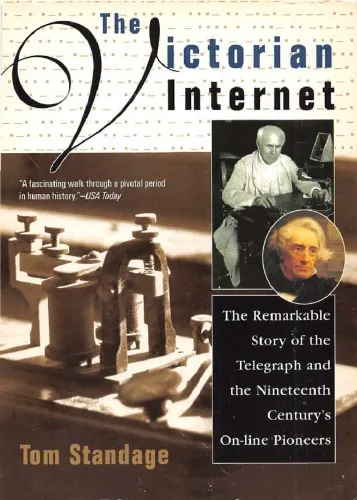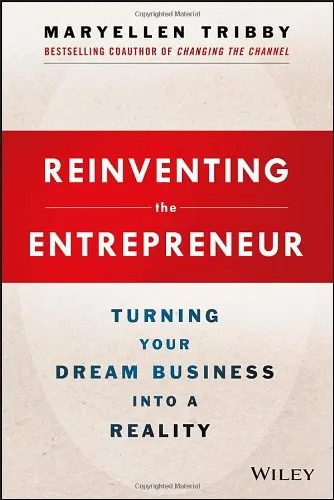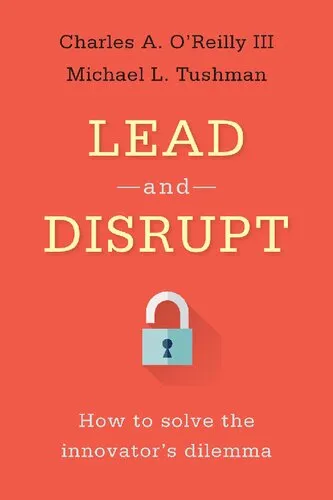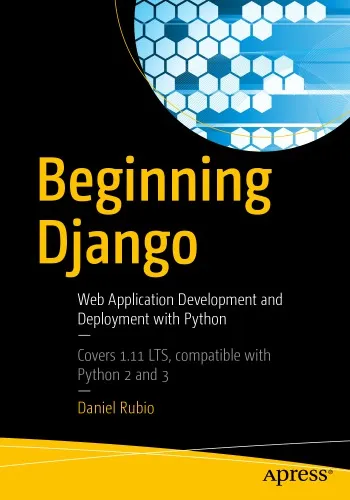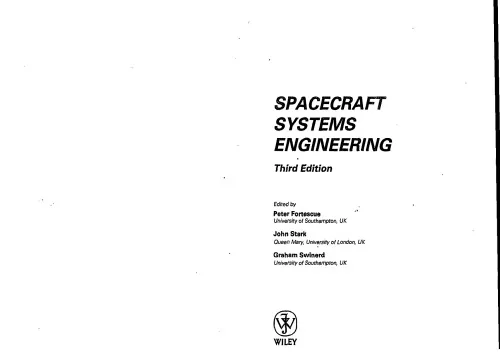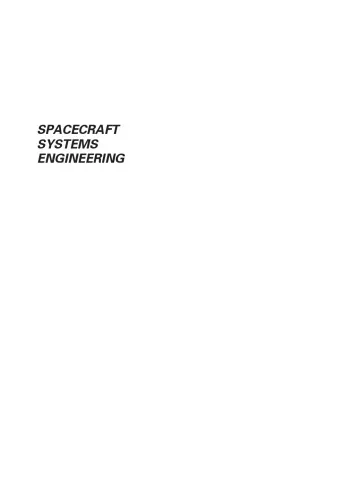The Innovator’s Dilemma
4.4
بر اساس نظر کاربران

شما میتونید سوالاتتون در باره کتاب رو از هوش مصنوعیش بعد از ورود بپرسید
هر دانلود یا پرسش از هوش مصنوعی 2 امتیاز لازم دارد، برای بدست آوردن امتیاز رایگان، به صفحه ی راهنمای امتیازات سر بزنید و یک سری کار ارزشمند انجام بدینکتاب های مرتبط:
Part 1
Part 2
معرفی جامع کتاب 'The Innovator’s Dilemma'
کتاب 'The Innovator’s Dilemma' نوشتهٔ کلایتون ام. کریستنسن، یکی از آثار برجسته و تأثیرگذار در حوزه مدیریت و نوآوری است که به بررسی پدیدههای Disruptive Innovation و چالشهایی که شرکتها هنگام با آن مواجه میشوند، میپردازد.
خلاصه جامع کتاب
کتاب 'The Innovator’s Dilemma' عمیقاً به این مسئله میپردازد که چرا شرکتهای موفق، با وجود منابع و تواناییهای فراوان، اغلب در پذیرش و توسعه نوآوریهای مخرب (Disruptive Innovations) شکست میخورند. ادعای اصلی کریستنسن این است که فرآیندهای موجود در سازمانهای موفق که برای استانداردها و بهبودهای کاری طراحی شدهاند، ممکن است مانع از پذیرش تغییرات اساسی و نوآوریهای بنیادین شوند.
کریستنسن با اشاره به مثالهایی از صنایع مختلف، مانند صنعت هارد دیسک و فولاد، نشان میدهد که چگونه شرکتها میتوانند گرفتار یک «دوراهی» واقعی شوند: آنها امر نوآوری را نادیده میگیرند به این خیال که روی کالاها و خدماتی تمرکز کردهاند که از نظر مشتریانشان ارزش بیشتری دارد. اما این تمرکز بر بهبودهای تدریجی، ممکن است آنها را در برابر نوآوریهای بنیادی و مخرب آسیبپذیر کند.
نکات کلیدی
- نوآوریهای مخرب معمولاً در ابتدا بازارهای کوچکتری را هدف قرار میدهند و به مرور زمان میتوانند به تهدیدهای جدی تبدیل شوند.
- سازمانها باید برای مقابله با چالشهای ناشی از نوآوریهای مخرب، ساختارها و فرآیندهای جدیدی ایجاد کنند.
- مدیران باید به نشانههای ابتدایی Disruptive Innovation توجه ویژه داشته باشند تا بتوانند استراتژیهای مناسب را به کار گیرند.
جملات معروف از کتاب
«نوآوریهای مخرب ابتدا در بازارهای حاشیهای و با عملکردی کمتر از محصولهای فعلی آغاز میشوند، اما به سرعت رشد میکنند و میتوانند جایگزین روشها و محصولات قدیمی شوند.»
«تاریخ نشان داده است که حتی موفقترین شرکتها نیز اگر به نوآوریهای بنیادین نپردازند، ممکن است جایگاه خود را از دست بدهند.»
اهمیت این کتاب
کتاب 'The Innovator’s Dilemma' به عنوان یکی از مهمترین و تأثیرگذارترین کتابها در حوزه مدیریت و نوآوری، به مدیران و کارآفرینان کمک میکند تا به چالشهایی که نوآوریهای مخرب برای سازمانها به بار میآورند بهتر پاسخ دهند. این کتاب توانسته است شیوههای تفکر سنتی در مورد مدیریت نوآوری را به چالش بکشد و تاکید میکند که موفقیتهای گذشته، تضمینی برای موفقیتهای آینده نیستند. نوآوران و مدیران ارشد اغلب از مفاهیم بیان شده در این کتاب بهره میبرند تا استراتژیهای نوآوری و رشد را تعریف و پیادهسازی کنند.
Introduction to "The Innovator’s Dilemma"
"The Innovator’s Dilemma" by Clayton M. Christensen is a seminal work in the field of business innovation, strategy, and management. First published in 1997, the book challenges conventional business wisdom and introduces the powerful concept of "disruptive innovation," which has since been used to describe radical changes in industries. Christensen's insights provide a critical framework for understanding how even the best companies can lose market leadership, and why they fail in the face of disruptive changes—despite doing everything "right."
Detailed Summary of the Book
At its core, "The Innovator’s Dilemma" explores why leading companies fail to capitalize on groundbreaking, disruptive innovations. Christensen articulates that successful companies often make rational, sound decisions that align with customer needs, yet, paradoxically, it is these very decisions that make them vulnerable to disruptive technologies. Disruptive innovations start by serving niche segments or emerging markets, often with inferior products or services that incumbents overlook or dismiss. Over time, these innovations improve and start to attract a wider audience, eventually displacing established players.
Christensen categorizes innovations into two types: sustaining and disruptive. Sustaining innovations improve existing products and are typically embraced by market leaders. In contrast, disruptive innovations initially offer lower performance in traditional metrics but introduce novel value propositions. Through detailed case studies, including the disk drive industry and retail, Christensen illustrates how companies can avoid falling victim to the innovator’s dilemma by cultivating an environment that encourages disruptive innovations.
Key Takeaways
- **Disruptive Innovation:** A term that describes smaller companies successfully challenging established businesses by initially targeting overlooked segments or introducing new models and gradually moving upmarket.
- **Incumbent Vulnerability:** Even market leaders with sound strategies can fail when they do not or cannot adapt to disruptive innovations.
- **Strategic Change is Necessary:** Embracing a dual strategy of nurturing both sustaining and disruptive innovations is essential for long-term success.
- **Understanding Customer Needs:** Constantly interacting with emerging markets and unserved customer bases can reveal latent needs and opportunities for disruption.
Famous Quotes from the Book
“The reason why it is so difficult for existing firms to capitalize on disruptive innovations is that their processes and their business model that make them good at the existing business actually make them bad at competing for the disruption.”
“Successful companies want their resources to be focused on activities that address customers’ needs and promise the largest returns. As a result, they tend not to invest in disruptive technologies that at first do not meet the needs of mainstream customers.”
Why This Book Matters
"The Innovator’s Dilemma" is not just a book but a paradigm shift in how we understand business innovation and strategy. It compels business leaders, strategists, and innovators to reassess how they perceive competition and manage change. The principles laid out by Christensen remain relevant across different sectors and times, and they guide companies on how to navigate uncertainties and embrace innovation. In a rapidly evolving world marked by technological change, understanding the innovator’s dilemma is more crucial than ever for sustaining growth and fostering groundbreaking advancements.
This book not only provides a framework for understanding why well-managed companies fail, but it also offers strategic guidance for organizations seeking to harness disruptive innovations to their advantage. By embracing the lessons within, businesses can better adapt to changing market dynamics and position themselves on the forefront of innovation, rather than being blindsided by it.
دانلود رایگان مستقیم
شما میتونید سوالاتتون در باره کتاب رو از هوش مصنوعیش بعد از ورود بپرسید
دسترسی به کتابها از طریق پلتفرمهای قانونی و کتابخانههای عمومی نه تنها از حقوق نویسندگان و ناشران حمایت میکند، بلکه به پایداری فرهنگ کتابخوانی نیز کمک میرساند. پیش از دانلود، لحظهای به بررسی این گزینهها فکر کنید.
این کتاب رو در پلتفرم های دیگه ببینید
WorldCat به شما کمک میکنه تا کتاب ها رو در کتابخانه های سراسر دنیا پیدا کنید
امتیازها، نظرات تخصصی و صحبت ها درباره کتاب را در Goodreads ببینید
کتابهای کمیاب یا دست دوم را در AbeBooks پیدا کنید و بخرید
6278
بازدید4.4
امتیاز0
نظر98%
رضایتنظرات:
4.4
بر اساس 0 نظر کاربران
Questions & Answers
Ask questions about this book or help others by answering
No questions yet. Be the first to ask!
